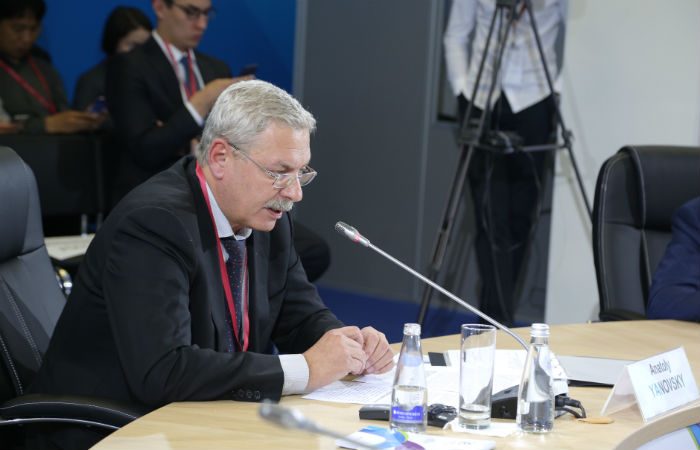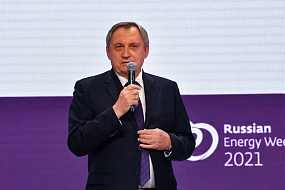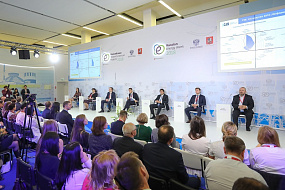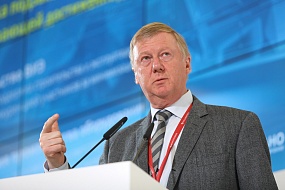‘Russia’s Foreign Energy Policy’ roundtable takes place

4 October, Moscow. – The roundtable ‘Russia’s Foreign Energy Policy’ was held as part of Russian Energy Week.
The event was attended by Russian Deputy Minister of Foreign Affairs Gennady Gatilov, Chairman of the State Duma Committee on Energy Pavel Zavalny, Gazprom Deputy CEO Alexander Medvedev, Director and Academic Supervisor of the International Institute of Energy Policy and Diplomacy at Moscow State Institute of International Relations Valery Salygin, Greek Minister of Environment and Energy Giorgos Stathakis, and President of the Institute for Energy and Finance Vladimir Feigin. The roundtable was moderated by Russian Deputy Minister of Energy Anatoly Yanovsky.
The roundtable participants analysed the status of Russia’s foreign energy policy within the context of the country’s current political agenda, identified mechanisms to coordinate efforts to ensure predictability in the development of global energy, discussed formats for cooperation between Russian and foreign companies, outlined the main principles for Russia’s positioning at the level of interaction of international organizations, and assessed the increased role of a multilateral format of cooperation in the energy sector.
“Recently, many people have realized the importance of maintaining stability on global energy markets. With this in mind, the focus needs to be shifted within the energy dialogue between countries from the security of supplies or the security of demand to the security of markets”, Yanovsky said. As a successful example of this kind of cooperation, he cited the OPEC+ agreement among oil producers to reduce oil production in order to stabilize the oil market.
Discussing the development of the energy policy tools, Yanovsky noted that the current foreign political situation in which the essential elements consist of various forms of political pressure, including sanctions, the suspension or termination of the energy dialogue, etc., limits opportunities to utilize certain means and provides incentive for new solutions. Such solutions include rapprochement with new partners (expanding cooperation with BRICS countries and agreements with OPEC), the implementation of an import substitution policy, the use of new financial institutions and instruments, and the development of analytical cooperation with international organizations (UNECE, GECF, OPEC, etc.) and with the world’s largest countries (China).
In conclusion, the roundtable participants noted the success of the current foreign energy policy. This is confirmed by the steady growth seen over the past five years in the supply of Russian energy resources. Last year, the share of Russian supplies in global energy exports amounted to: 12% for oil, 19.2% for gas, and 15.1% for coal. Among imports to EU member states, the share of Russian supplies totalled: 30.8% for oil, 34.1% for gas, and 29.5% for coal.





